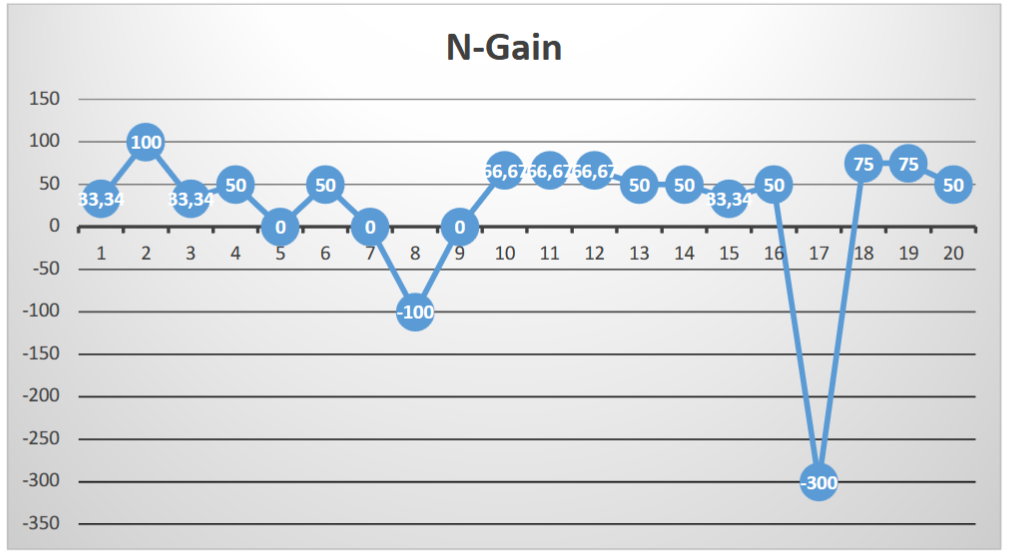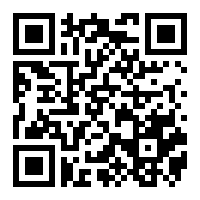Optimizing Student Motivation and Learning Outcomes Through Group Investigation Cooperative Learning Model on Ratio Material: A Study of Mathematical Reasoning Ability
DOI:
https://doi.org/10.23917/ijolae.v7i3.8743Keywords:
cooperative learning, critical thinking skills, learning atmosphere, learning motivation, learning styles, meaningful learningAbstract
This study aims to examine the effectiveness of the application of the Group Investigation cooperative learning model in optimizing student motivation and learning outcomes on ratio material, as well as analyzing its contribution to mathematical reasoning skills. This study used a quantitative approach with a pre-test and post-test design involving 20 junior high school students in grade VII. Data were obtained through mathematical reasoning ability test, motivation questionnaire, and analysis of students' learning outcomes. The results showed an increase in the mean score from pre-test to post-test by -6.50 (p = 0.001) which reflects more uniform student learning outcomes. Regression analysis showed a very strong relationship between the independent variable (mathematical reasoning) and the dependent variable (motivation and learning outcomes) with an R value of 0.929 and R2 of 86.4%, indicating that motivation and learning outcomes explained most of the variation in reasoning ability. Specifically, the contribution of mathematical reasoning (X) to student learning outcomes (Y2) was 38.94% while the contribution of motivation (Y1) to mathematical reasoning reached 45.83%. In addition, regression analysis shows that motivation has a significant influence on mathematical reasoning ability, while learning outcomes have a positive but statistically insignificant influence. This finding indicates that the Group Investigation cooperative learning model is not only effective in improving student learning outcomes, but also has an important role in strengthening mathematical reasoning skills through increased motivation. Therefore, cooperative learning strategies that emphasize increased motivation need to be applied in mathematics learning to optimize students' analytical thinking skills.
Downloads
References
Acoci. (2023). Application Of Cooperative Learning Model Group Investigation (Gi) Type Of Social Studies In Improving Learning Outcomes In Elementary School Students. Jurnal Wawasan Sarjana, 2(1), 12–20. https://doi.org/https://doi.org/10.35326/wawasan.v8i4.3311
Aljura, A. N., Retnawati, H., Zulnaidi, H., & Mbazumutima, V. (2025). Understanding High School Students’ Errors in solving Mathematics Problems: A Phenomenological Research. Indonesian Journal on Learning and Advanced Education (IJOLAE), 7(1), 154–178. https://doi.org/10.23917/ijolae.v7i1.24005
Apriani, A., Kormil Saputra, & Chanakan Sojayapan. (2024). Optimization of Group Investigation (GI) Co-operative Learning Model to Improve Students’ Creativity in Science Learning. Classroom Experiences, 2(1), 27–38. https://doi.org/10.59535/care.v2i1.159
Arief, H. S., & Sudin, A. (2016). Meningkatkan Motivasi Belajar Melalui Pendekatan Problem-Based Learning (Pbl). Jurnal Pena Ilmiah, 1(1), 141–150. https://doi.org/https://doi.org/10.23819/pi.v1i1.2945
Atteh, E., Boadi, A., & Andam, E. A. (2020). Model for Implementing Cooperative Learning in a Mathematics Classroom. Asian Journal of Advanced Research and Reports, 11(4), 14–19. https://doi.org/10.9734/ajarr/2020/v11i430270
Cahyani, A., Shalsabilia, & Novita, J. (2024). Analysis of Students’ Motivation to Learn Mathematics in Class XII. Journal of Research on Mathematics Instruction (JRMI), 4(2), 49–57. https://doi.org/10.33578/jrmi.v4i2.91
Dinata, F. T., Rusyid, H. K., Fatimah, S., & Herman, T. (2023). Analisis kemampuan koneksi matematis siswa pada pembelajaran luring pasca pandemi. Jurnal Pembelajaran Matematika Inovatif, 6(4), 1301–1312. https://doi.org/10.22460/jpmi.v6i4.17648
Ebbels, S. H., Bannister, L., Holland, B., & Campbell, L. (2022). Effectiveness of intervention focused on vocational course vocabulary in post-16 students with (developmental) language disorder. International Journal of Language and Communication Disorders, 57(6), 1334–1353. https://doi.org/10.1111/1460-6984.12758
Fatihatussa’adah, I., Yamtinah, S., Ariani, S. R. D., Wiyarsi, A., Widarti, H. R., Shidiq, A. S., & Abrori, F. M. (2024). Fostering Collaboration and Enhancing Student Learning Achievement through the Integration of Ethnoscience in the Common Knowledge Construction Model with Podcast Media. Indonesian Journal on Learning and Advanced Education (IJOLAE), 6(3), 295–314. https://doi.org/10.23917/ijolae.v6i3.23222
Firdaus, A., Asikin, M., Waluya, B., & Zaenuri, Z. (2021). Problem Based Learning (PBL) Untuk Meningkatkan Kemampuan Matematika Siswa. QALAMUNA: Jurnal Pendidikan, Sosial, Dan Agama, 13(2), 187–200. https://doi.org/10.37680/qalamuna.v13i2.871
Firmanti, P. (2017). Penalaran Siswa Laki-laki dan Perempuan dalam Proses Pembelajaran Matematika. HUMANISMA: Journal of Gender Studies, 1(2), 73. https://doi.org/https://doi.org/10.30983/jh.v1i2.220
Habibullah, H., Durahim, Y., Pamungkas, T., Haryundari, M. L. I., & Rusnila, R. (2022). The Effect of Motivation on Students’s Mathematics Learning Outcomes in the New Normal Era. Jambura Journal of Mathematics Education, 3(2), 63–69. https://doi.org/10.34312/jmathedu.v3i2.15114
Harianto, B. B. (2024). Embracing Cooperative Learning for Critical Thinking and Enhanced Learning Outcomes. East Asian Journal of Multidisciplinary Research, 3(5), 1709–1720. https://doi.org/10.55927/eajmr.v3i5.9325
Hasanah, S. I., Tafrilyanto, C. F., & Aini, Y. (2019). Mathematical Reasoning: The characteristics of students’ mathematical abilities in problem solving. Journal of Physics: Conference Series, 1188(1). https://doi.org/10.1088/1742-6596/1188/1/012057
Hena Triana, & Mukhtar. (2024). Penerapan Model Pembelajaran Group Investigation (Gi) Berbantuan Alat Peraga Untuk Meningkatkan Kemampuan Komunikasi Matematis Di Smpn 1 Labuhan Deli. Journal of Student Research, 2(1), 263–275. https://doi.org/10.55606/jsr.v2i1.2085
Hidayah, R., Fajaroh, F., Parlan, Dasna, I. W., & Nendi, I. (2023). Validitas Buku Model Pembelajaran Kolaboratif Berbasis Masalah untuk Meningkatkan Kemampuan Berpikir Kreatif dan Metakognitif Mahasiswa. Journal of Business, Social and Technology (Bustechno), 4(1), 96–106. https://doi.org/https://doi.org/10.59261/jbt.v4i2.163
Huda, M. K. (2016). Penerapan Pembelajaran Kooperatif Tipe Investigasi Kelompok Untuk Meningkatkan Kemampuan Pemecahan Masalah Matematika Siswa Pada Materi Persamaan Garis Lurus. Infinity Journal, 5(1), 15. https://doi.org/10.22460/infinity.v5i1.p15-24
Ifaksasily, T., & Muskita, M. (2024). Application of Group Investigation Learning Models and Learning Strategies Inquiry To Improving Learning Outcomes of Students Class Xi Sma Negeri 4 Ambon. RUMPHIUS Pattimura Biological Journal, 6(1), 032–039. https://doi.org/10.30598/rumphiusv6i1p032-039
Indarwati, D., Kusumaningtyas, D. A., & Rumgayatri. (2024). Enhancing Mathematics Learning Outcomes of First-Grade Students through the STAD Cooperative Learning Model. Jurnal Genesis Indonesia, 3(02), 80–88. https://doi.org/10.56741/jgi.v3i02.550
Ismunandar, D., Sobikhah, S., Misbahussurur, M., & Tanu Wijaya, T. (2023). Application of The student Teams Achivement Division (STAD) Type Cooperative Method on Algebraic Function Limit Material to Improve Learning Outcomes and Student Motivation. International Journal of Science Education and Cultural Studies, 2(1), 39–46. https://doi.org/10.58291/ijsecs.v2i1.86
Mabruri, M. I. (2022). Simulasi Rasio dan Proporsi Menggunakan Google Spreadsheet. Jurnal Didaktika Pendidikan Dasar, 6(1), 347–368. https://doi.org/10.26811/didaktika.v6i1.643
Mirna, M., Mudjiran, M., Aysi, R., & Murni, D. (2023). Analisis Pengaruh Motivasi Belajar Terhadap Pemahaman Konsep Matematis Peserta Didik. Jurnal Muara Pendidikan, 8(1), 96–107. https://doi.org/10.52060/mp.v8i1.1054
Mulyono, D., & Elly S., A. (2020). Pengaruh Model Pembelajaran Reciprocal Teaching dan Student Facilitator and Explaining Terhadap Hasil Belajar Matematika dengan Mengontrol Kemampuan Awal Siswa. Jurnal Kependidikan: Jurnal Hasil Penelitian Dan Kajian Kepustakaan Di Bidang Pendidikan, Pengajaran Dan Pembelajaran, 6(2), 238. https://doi.org/10.33394/jk.v6i2.2536
Nababan, G., Extin, J., Purba, L., & Aji, K. A. (2021). Mengukur Keterlibatan Siswa Dalam Pembelajaran Online Siswa Kelas Vii Di Sekolah Abc Pada Pembelajaran Matematika Measuring Student Engagement in Online Learning of Class Vii Students At Sekolah Abc in. Magister Pendidikan Matematika (JUMADIKA), 3, 100–109.
Ndruru, T., Waruwu, T., Zega, N. A., & Telaumbanua, D. (2024). Penerapan Model Pembelajaran Kooperatif Tipe Team Games Tournament untuk Meningkatkan Hasil Belajar Siswa Kelas XII SMA Negeri 2 Hilimegai. Jurnal Ilmiah Multidisiplin, 2, 322–331. https://doi.org/https://doi.org/10.62138/tuhenori.v2i4.107
Nofriansyah, N., Rahayu, S., & Wardiman, J. (2024). Cooperative Learning Model of Group Investigation Technique in Economic Learning. Journal of Economics and Economic Education, 1(1), 41–48. https://doi.org/10.59066/jeee.v1i1.761
Nugraha, Y., & Sujadi, I. (2016). Penalaran proporsional siswa kelas VII. Jurnal Tadris Matematika, 9(1), 34–47. https://doi.org/http://dx.doi.org/10.20414/betajtm.v9i1.2
Nurmeidina, R., Zaqiyah, N. N., Nugroho, A. G., Andini, A., Faiziyah, N., Adnan, M. B., & Syar’i, A. (2025). Analysis of students’ problem-solving abilities in solving contextual problems of Linear Equations with Three Variables in terms of Habits of Mind. Indonesian Journal on Learning and Advanced Education (IJOLAE), 7(1), 117–135. https://doi.org/10.23917/ijolae.v7i1.23550
Paulinus Kanisius, N., Mawarni, G., & Nobertanidarmawati, G. (2024). Pentingnya Penerapan Metode Pembelajaran Kooperatif Group Investigation untuk Meningkatkan Prestasi Belajar Siswa. Jurnal Magistra, 2(3). https://doi.org/https://doi.org/10.62200/magistra.v2i3.151
Pratiwi, D. D. (2024). Riset Keterhubungan: Bagaimana Self confidence dan Resiliensi Matematis Mempengaruhi Penalaran dan Kecerdasan Numerik Siswa. Jurnal Riset HOTS Pendidikan Matematika, 4(September), 1174–1189. https://doi.org/https://doi.org/10.51574/kognitif.v4i3.2066
Puspita, T., Muzdalipah, I., & Nurhayati, E. (2023). Kemampuan Penalaran Proporsional pada Materi Perbandingan. 3(24), 107–116. https://doi.org/https://doi.org/10.31980/plusminus.v3i1.1227
Rahmawati, R. (2024). Early Cognitive Development and Its Effect on Learning Outcomes in Statistics Education. Journal La Edusci, 5(4), 216–226. https://doi.org/10.37899/journallaedusci.v5i4.1436
Rohmah, A., & Zulfitria, Z. (2024). Strategi Pembelajaran Diferensiasi berbasis Aktivitas dalam Meningkatkan Motivasi Belajar Siswa SD. Journal of Instructional and Development Researches, 4(4), 214–222.
Sara Sahrazad, Maria Cleopatra, Sigit Widiyarto, Zeinora, Fadjriah Hapsari, Adhis Darussalam Pamungkas, & Hugo Aries Suprapto. (2023). Application of Guidance Counseling with Cooperative Learning Methods to Increase Middle School Students’ Learning Motivation. Formosa Journal of Multidisciplinary Research, 2(10), 1709–1716. https://doi.org/10.55927/fjmr.v2i10.6634
Silwana, A., Subanji, S., Manyunu, M., & Rashahan, A. A. (2021). Students’ Responses Leveling in Solving Mathematical Problem Based on SOLO Taxonomy Viewed from Multiple Intelligences. Indonesian Journal on Learning and Advanced Education (IJOLAE), 3(1), 1–16. https://doi.org/10.23917/ijolae.v3i1.10528
Siti Norhidayah. (2023). Mathematical Reasoning Ability as a Tool to improve Mathematical Literacy. Hipotenusa: Journal of Mathematical Society, 5(2), 147–158. https://doi.org/10.18326/hipotenusa.v5i2.565
Solikah, A. A., Saputro, S., Yamtinah, S., & Masykuri, M. (2024). Research Trends in Group Investigation Learning Model for Critical Thinking Skills in Science Learning. Jurnal Inovasi Pendidikan IPA, 10(1), 62–75. https://doi.org/10.21831/jipi.v10i1.70942
Sudarsana, I. K. (2018). Pengaruh Model Pembelajaran Kooperatif Terhadap Peningkatan Mutu Hasil Belajar Siswa. Jurnal Penjaminan Mutu, 4(1), 20. https://doi.org/10.25078/jpm.v4i1.395
Sukardi, I. R., Taga, G., & Aje, A. U. (2024). Pengaruh Penerapan Model Pembelajaran Investigasi Kelompok Terhadap Hasil Belajar Matematika. Jupika: Jurnal Pendidikan Matematika, 7(1), 1–8. https://doi.org/https://doi.org/10.37478/jupika.v7i1.3762
Taliak, J., Amaliah, A., Nugroho, A., Mubarak, M., & Putro, A. B. P. (2024). Advancements in Educational Technology: Cultivating Critical Thinking Proficiency among Students Through Innovative Learning Models. Global International Journal of Innovative Research, 2(1), 355–363. https://doi.org/10.59613/global.v2i1.56
Tampubolon, Y. S. (2024). The Influence of Cooperative Learning Models and Learning Motivation on Student Learning Outcomes on Chemical Bond Material. EDUNITY, 3(9). https://doi.org/https://doi.org/10.57096/edunity.v3i9.313
Thomas, H., & Martina, D. (2022). Application Of Cooperative Learning Model In Increasing Students’ Motivation, Learning Participation And Creativity. Educativo: Jurnal Pendidikan, 1(1), 314–319. https://doi.org/10.56248/educativo.v1i1.55
Triana, N., Mukhtar, N., Rasip, O. M., Ramadhan, H. F. A., & Monk, L. J. F. (2024). Legal System of Community Participation in Environmentally Friendly Power Plants: A Socio-Legal Study of Micro-Hydro Projects in Central Java. Jurnal Hukum, 41(3), 567-587.
Wati, E. B., & Fauzan, A. (2020). The Influenceof Cooperative Learning Model Group Investigation (GI) Type and Learning Motivation Approach With the Understanding Concepts and Solving Mathematical Problem on Grade 7 in Upt Smp Negeri Airpura. International Journal of Educational Dynamics, 2(1), 44–54. https://doi.org/10.24036/ijeds.v2i1.231
Widhiyani, I. A. N. T., Sukajaya, I. N., & Suweken, G. (2019). Pengembangan Soal Higher Order Thinking Skills Untuk Pengkategorian Kemampuan Pemecahan Masalah Geometri Siswa Smp. Jurnal Pendidikan Dan Pembelajaran Matematika Indonesia, 8(2), 68–77. https://doi.org/10.23887/jppm.v8i2.2854
Yuliana, M., Suryaningtyas, W., & Shoffa, S. (2017). Pengaruh Model Pembelajaran Kooperatif Tipe STAD dengan Metode Mnemonik Terhadap Hasil Belajar Siswa Kelas X di SMA Muhammadiyah 1 Surabaya. MUST: Journal of Mathematics Education, Science and Technology, 2(1), 142. https://doi.org/10.30651/must.v2i1.530
Zitha, I., Mokganya, G., & Sinthumule, O. (2023). Innovative Strategies for Fostering Student Engagement and Collaborative Learning among Extended Curriculum Programme Students. Education Sciences, 13(12), 1196. https://doi.org/10.3390/ educsci13121196

Submitted
Accepted
Published
Issue
Section
License
Copyright (c) 2025 Meli Anggriyani, Syaharuddin Syaharuddin, Vera Mandailina, Abdillah Abdillah, Wasim Raza

This work is licensed under a Creative Commons Attribution 4.0 International License.












